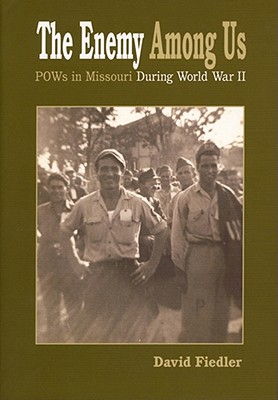
During World War II, more than fifteen thousand German and Italian soldiers came to Missouri. This was no invasionary force; rather these were prisoners of war, part of a flood of almost a half-million men captured and sent to the United States, held here until the end of the war.
Life as a POW in the thirty camps scattered across Missouri was a surprisingly pleasant experience. The men ate well and were quartered under the same conditions as the Americans assigned to guard them, and the prisoners often enjoyed a great deal of freedom. The internees worked on local farms, often "guarded" only by a bored GI snoozing under a shade tree. They organized camp theater troupes, sports leagues, and orchestras, and some prisoners studied at the camp library for classes at the POW "university."
For residents of the mostly small towns where these camps were located, the arrival of enemy POWs engendered a range of emotions--first fear and apprehension, then curiosity, and finally, in many cases, a feeling of fondness for the men they had come to know and like.
In The Enemy among Us, David Fiedler tells the story of entirely ordinary people who lived in extraordinary times. This fascinating tale recounts the creation of the camps and the lives touched when fate brought Missourians and the enemy face-to-face. Though they did not seek those circumstances, none could forget how their lives changed when POWs came to Missouri.
member goods
listens & views

VOL. 6-ORDER ORDANATA / VARIOUS ...
by VOL. 6-ORDER ORDANATA / VARIOUS (UK)
COMPACT DISCout of stock
$11.99






